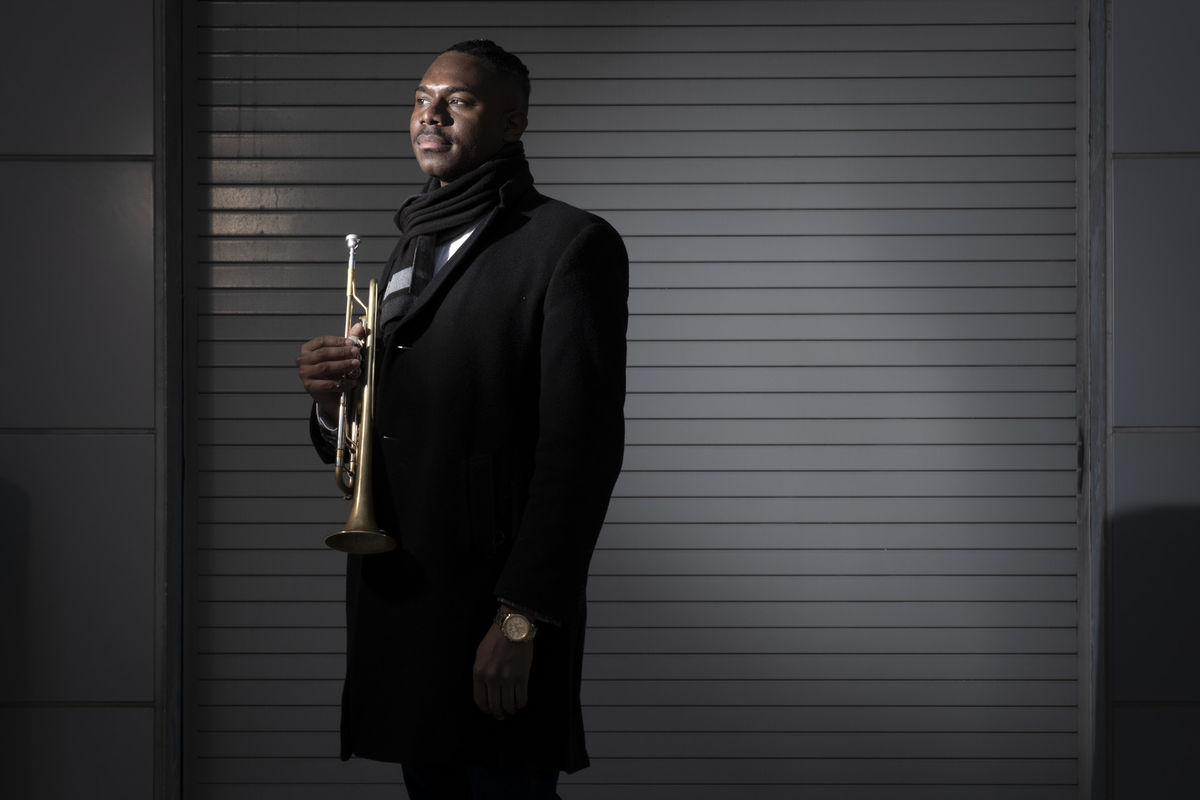January 24, Fareed Simpson-Hankins, BYR ’19, ’21, premiered his video series, Second Line Bebop, on YouTube. Of the positive public reaction, he said: “I don’t think people expected it to be what it was, which is a good feeling for jazz musicians, because we don’t don’t like to be predictable.”
The video series highlights the cultural parallels between Philadelphia and New Orleans with a focus on jazz music. It was the culmination of research conducted by Simpson-Hankins with the support of a $10,000 stipend granted through the Presser Graduate Music Award. Only graduate students who express interest in furthering their education are eligible for the award, which is awarded by the Presser Foundation, a music education and philanthropy organization based in Philadelphia.
Simpson-Hankins’ research tracks similarities in the trajectories of major figures in the New Orleans and Philadelphia jazz canon. For example, Louis Armstrong from New Orleans and John Coltrane from Philadelphia are representative of the sounds of each city. The duo laid the foundation for modern iterations of jazz in the form of late-night broadcast music, represented by Jon Batiste and Questlove, also from New Orleans and Philadelphia, respectively.
And while his project focuses on jazz music, it also touches on the role the two cities played in the creation of gospel music, as well as the similarities between Mardi Gras and the Mummers’ Parade.
The research into the similarities between New Orleans and Philadelphia and the accompanying video series are just one piece of the work Simpson-Hankins has done for the Presser Prize. He also teaches and shares his research with the Community Music Scholars Program, which provides music lessons to school-aged students in Philadelphia and is maintained through a close partnership with the Boyer College of Music and Dance. Through the program, students can participate in individual lessons, music theory lessons, or performance ensembles with minimal cost to families. Simpson-Hankins himself participated in the program for eight years, starting when he was 10 years old.
“I was the youngest there and didn’t know anyone, but it was a welcoming musical family,” Simpson-Hankins said of her Community Music Scholars Program debut. It was in the program that Simpson-Hankins met Boyer’s faculty member Terell Stafford, who would later become a close mentor. “That’s what we do in jazz. You learn and you share what you learn and you help young people the same way people did for you,” he said.
Fareed Simpson-Hankins, a graduate of Boyer College of Music and Dance, recipient of the Presser Graduate Music Award, raises awareness with the Community Music Scholars Program, which he began attending at age 10. (Photo by Joseph V. Labolito)
Since 1968, the Community Music Scholars program has connected young people with older people who want to help them master their instruments. “The idea was to create a connection between the university and the community,” said Mark Huxsoll, the director of Temple’s Music Preparation Program, of which the Community Music Scholars program is a part.
Although teaching music to young people is the primary focus of the Community Music Scholars program, the motivation for college readiness is an added benefit. “A number of students who have gone through the program are potential first-generation college students who come to campus and learn in the same environment as the students and develop a relationship with the university,” explained Huxsoll. “It’s a place where they can have some comfort and potentially move forward.”
The Community Music Scholars program also offers students the opportunity to create a sense of community centered around musicality. “Students find a supportive musical community almost like family,” said program coordinator Melissa Douglas. “They find real joy in getting together and making music.”
Although a career as a professional student musician is not the goal of the Community Music Scholars Program, success stories, like Simpson-Hankins’, are a source of pride. Most students who participate in the Community Music Scholars program pursue a wide range of disciplines, from liberal arts to business, when they reach college. In fact, Simpson-Hankins originally wanted to be a pharmacist. He began his undergraduate career at Temple studying both chemistry and trumpet before eventually realizing he had to choose one or the other first. In 2019, he earned a bachelor’s degree from Boyer with a major in jazz performance and a minor in chemistry, followed by a master’s degree in music and jazz studies in 2021.
Today, he reflects with emotion on the guardianship that laid the foundations for a life of continuous learning. “The biggest lesson for me was this shift in how I think about the art and how I want my playing life to unfold,” he said. “It was like the start of a journey.”
—Kiki Volkert

